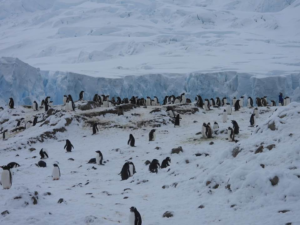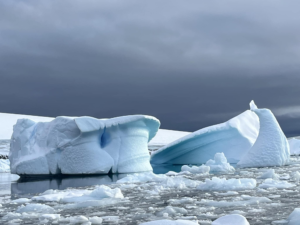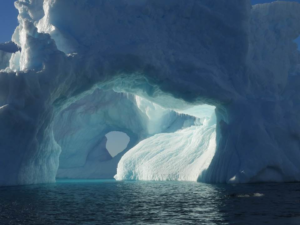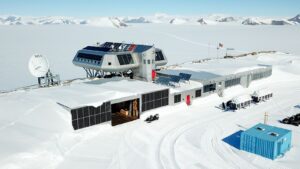Antarctica, often seen as a barren frozen wasteland, is full of surprises. While most people think they know everything about this mysterious continent, several misconceptions remain. Let’s set the record straight on some of the most common myths about Antarctica! 👇
-
“Antarctica is Just Ice and Snow.”

Fact: Antarctica is much more than just ice and snow. Beneath its thick ice sheets lies a rich ecosystem, with life forms uniquely adapted to its extreme environment.
From penguins and seals to microscopic life under the ice, Antarctica’s biodiversity is far more diverse than most people realize.
You can also read: The Joy of Exploring Ushuaia: Gateway to Antarctica
-
“No One Lives in Antarctica.”

Fact: While there are no permanent residents, Antarctica is far from empty. Every year, thousands of researchers and scientists from around the world live in research stations scattered across the continent. They work year-round, studying everything from climate change to biology, helping us understand our planet better.
-
“It’s Always Freezing in Antarctica.”

Fact: Yes, Antarctica is cold, but it has seasons! While the interior can experience extreme low temperatures, coastal areas warm up during the summer months (November to February) when temperatures can rise above freezing. So, while it’s icy, it’s not always as freezing as many think.
-
“Antarctica is Just a Giant Desert.”

Fact: Antarctica is the driest, not the wettest, continent on Earth. Though it receives very little precipitation, it’s still home to many unique life forms, including moss, lichens, and even flowering plants in the summer. The tundra becomes a surprising burst of life when temperatures rise.
Know about 8 Things That Every Traveller Should Know Before Travelling To Antarctica
-
“There’s No Research or Science in Antarctica.”

Fact: Antarctica is one of the world’s most important places for scientific research. Scientists study the continent’s ice sheets, wildlife, climate change, and more. The data collected from Antarctica is vital to understanding global warming, sea-level rise, and our planet’s future.
Why Antarctica Matters:
Despite its harsh environment, Antarctica is crucial for understanding the Earth’s past and future. The ice sheet holds about 60% of the world’s fresh water, and as climate change continues to impact the region, scientists are closely monitoring the melting ice and its potential effects on global sea levels.
Got More Questions About Antarctica? Let’s Chat! 💬
What’s the most surprising thing you’ve learned about Antarctica? Or maybe you have another misconception that you’d like to see debunked? Drop your thoughts in the comments below!
If you found this article interesting, consider sharing it with your network or tagging someone who’s fascinated by Antarctica! Your Journey Begins with MyKIITs!


